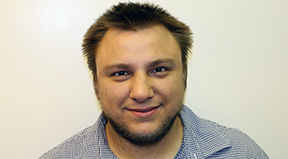Alex


Hands-on learning in lab courses is an important component of an engineering degree program. As increasing numbers of people with disabilities pursue educational opportunities in engineering, accessibility of engineering teaching and research labs is critical. The ultimate goal is simply equal access. Students, faculty, and staff who need to use a lab should be able to do so comfortably.
To ensure that an engineering lab is more accessible, consider the following:
The group of individuals pursuing engineering fields is becoming increasingly diverse with respect to gender, race, ethnicity, learning style, age, disability, and other characteristics. Engineering careers are potentially open to individuals with disabilities because of advancements in assistive technology that provide access to computers and facilitate common engineering tasks such as 3D-printing or Computer Numerical Control machines for fabrication and manufacturing.
There are over 35 million people in the United States who have disabilities, all of whom have different needs. A lot of the assistive technology they need is either unavailable, very expensive, or requires custom modification. Many people with disabilities cannot afford custom modifications. For the past twenty years the University of Toledo has been introducing students to assistive technology through senior design projects.
The National Science Foundation's General & Age Related Disabilities Engineering (GARDE) program supported undergraduate engineering design projects that developed technology to support people with disabilities. Projects funded through this program had multiple benefits, including:
Following are examples of strategies for integrating universal design, accessibility, and disability topics into the engineering curriculum, facilities, and programs.
Steps that disability and IT professionals can take to ensure the accessibility of their campus IT resources include:
6.811: Principles and Practice of Assistive Technology (PPAT) is a semester-long, project-based course at the Massachusetts Institute of Technology (MIT) focused on the design and engineering of customized assistive devices for people with disabilities. In PPAT, small teams of students work closely with a person with a disability in the Cambridge, MA area to develop a product or solution that helps them live more independently.